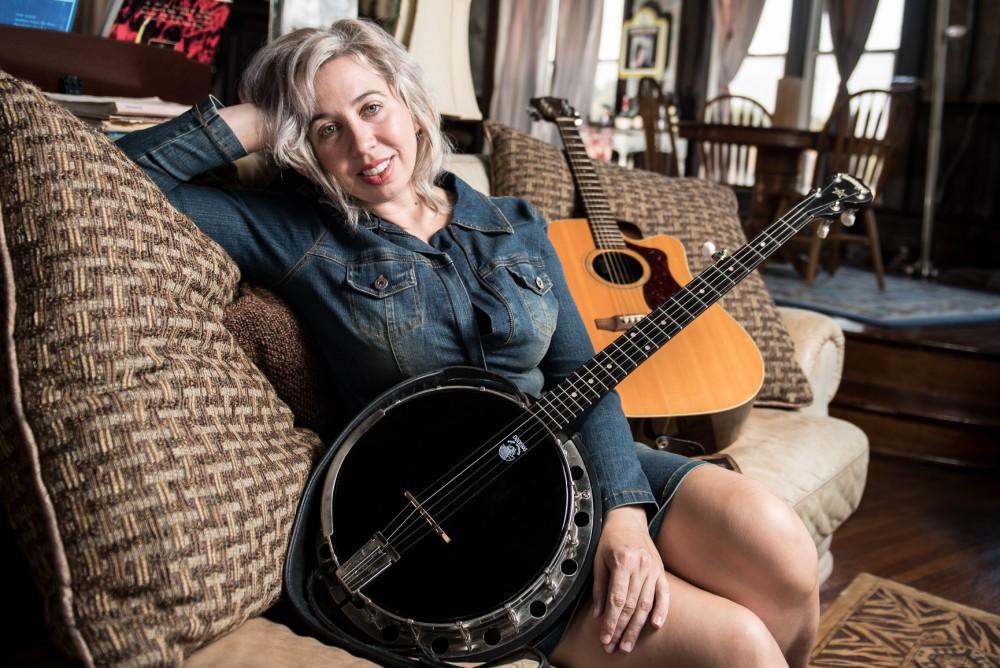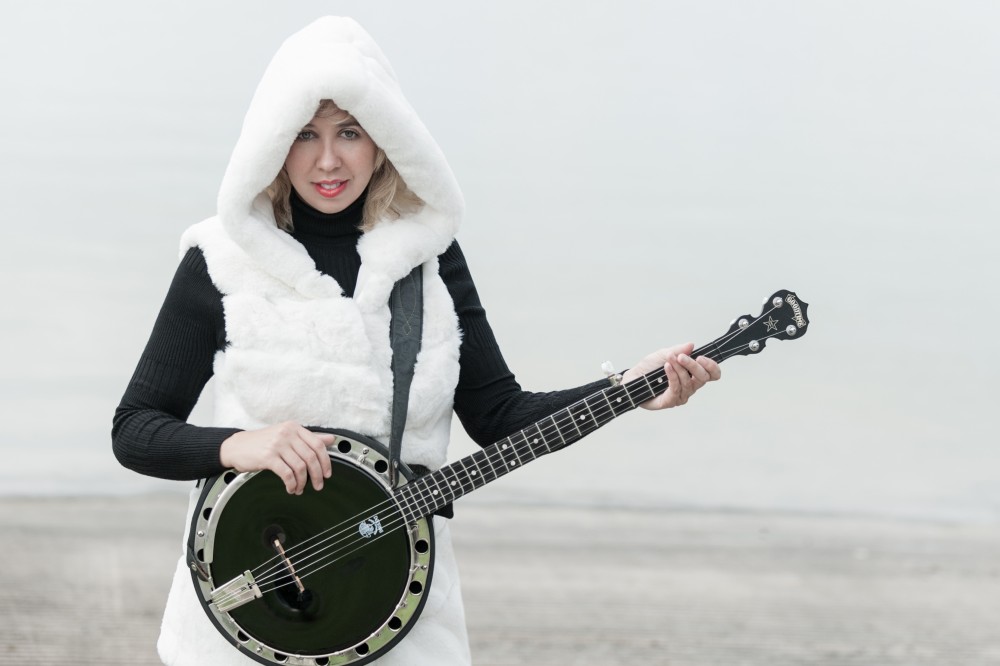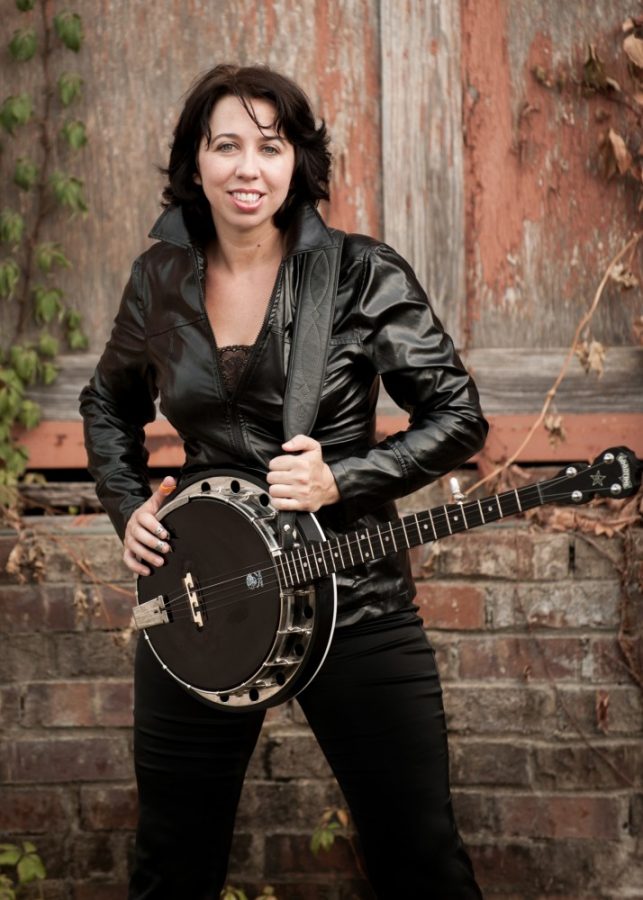From growing up on playing a rickety string guitar in a family-built cabin in the woods to successfully touring around the world, Mary James, or “Mean Mary,” talks with the Daily Wildcat about her journey to get to where she is now.
James’ band, Mean Mary and the Contrarys, is working on a project that will come out next year. Meanwhile, her own album “Cold” comes out Oct. 4, 2019 and her tour just kicked off on Sept. 14. James will be making a stop in Tucson to perform on Sept. 24 at Monterey Court. Tickets are $10.
Daily Wildcat: What was it like growing up learning how to play instruments and writing songs at such a young age?
Mary James: I learned how to read music before I learned how to read. It felt normal. I mean, I had a crazy family anyway. We grew up without electricity, we did the whole “Swiss Family Robinson” thing up in Minnesota, very adventuresome. So the music just, you know, felt like every kid should be doing this. I just really enjoyed it. I was touring when I was really young, I was playing professionally at six. So yeah, I just kind of took for granted that, you know, this is the way it is.
RELATED: Review: Gospel singer Tori Kelly kicks off concert in Tucson
DW: How did you get the nickname of “Mean Mary”?
MJ: It was my first original song I wrote when I was about five. All my other siblings were born in Florida but for me the hospital was across the line in Alabama. I thought that was worthy of a song, so I wrote this song called “Mean Mary from Alabam.” The press just picked up on it, and, you know, “Mean Mary is playing here,” or everybody would request the song. I retired the song when I turned six, but everybody just kept calling me it (Mean Mary).

DW: Why was music so important to you then and now?
MJ: I guess I was always really naturally drawn to music. My family was never involved playing music, but my mom is very musical … My mom said I was always rockin’ in the cradle, kind of thing.
As I got older, I went to California and I worked a little bit in movies and I kind of set the music aside for just a little bit and I realized how much I missed it. Doing the acting and stuff was fun, but it was the passion for the music that really has always been my thing. It’s just great to be back touring all the time these days.
DW: Was it your mom who taught you how to play all those instruments and write songs?
MJ: She did, all of us [six] kids. We got this old guitar — the strings were like two inches from the foot-board — and she kind of taught all of us on it. She didn’t really know how to play herself, and since I couldn’t read at the time, she read the music books to me and taught me how to read music. All my other siblings, they went on to other professions, but me and my brother Frank, who’s right above me in age, we just kept on playing music.
RELATED: Ph.D. student strings together modern American guitar history
DW: How did your own music make it out to the world?
MJ: I’ve been out there for a long time, since I was a kid. I’m not signed to a label; I have my own label. The music business has really changed with the fall of the record companies and the internet. All this stuff keeps transforming. It’s really given the opportunity for independent artists like myself to really reach their audience without going through the middle man of a record label. My popularity or just being known has come really just from YouTube, social media and being on tour. Being able for word-of-mouth to get out there.

DW: Can you tell me about the biggest setback you have had in your music career?
MJ: I was the passenger in an auto accident. I hit the dashboard with my throat, and it ended up paralyzing my right vocal chord. It was this big panic at the time. I remember being put into the stretcher and ambulance after I became conscience. I couldn’t talk, I could only whisper. I was asking the first responder there like, “What’s wrong?” He’s like, “Well, you hit your throat, we’ll find out what happens.”
Later we found out that the vocal chord was completely paralyzed, and I was told that it probably would never regain use again and I probably would never be able to sing and all this stuff. That was a big moment for me. I never felt like that was it for music because I play instruments, so I was very grateful that I was a musician as well as a singer at that time. But it was very heartbreaking to not be able to reach those notes. I only had two notes I could sing. But with a lot of hope and faith and prayer, six months later, I got movement back in [my vocal chord].
DW: How have you come out stronger from that situation and made music to reflect that?
MJ: Everything as a songwriter and just performing, everything that happens in your life, comes out in the music. For me personally, it taught me to really appreciate being able to do things that you take for granted, like the singing. I tend to be a positive person so I hope that when I perform and interact with people, it shows that I always want to give that feel of “things will always get better,” and “be happy” kind of an attitude.
DW: Are there any cities that you are looking forward to touring in?
MJ: Everywhere. I’ve had a great time in Arizona in the past, so I’m really looking forward to coming back to Phoenix and Tucson and doing those on the way home.









